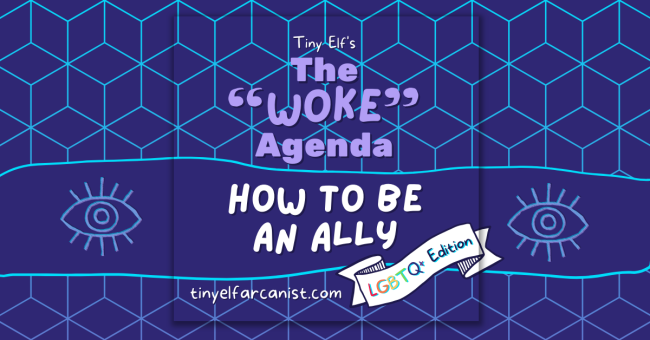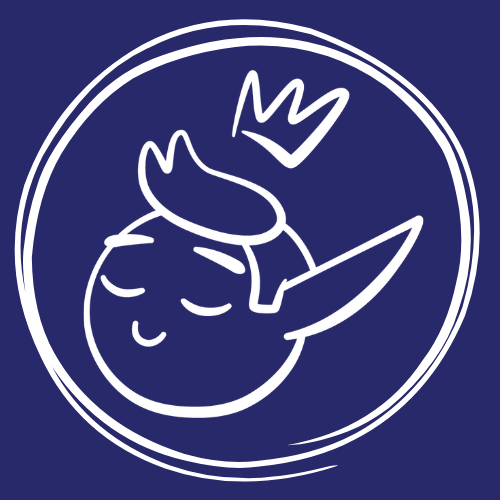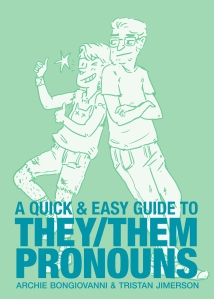
This is another Pride Month-themed issue of The “Woke” Agenda. Let’s start from the basics: some people understand being an ally as not being homophobic, sexist, transphobic, racist, ableist, etc. and being tolerant of people different from you. While that is well and good, to get your Official Ally Badge (I’m legally required to state this is not a real thing) you have to go beyond that, and the first step to being an ally is to listen to marginalized people. You may not be able to fully understand their struggles, but you’ll come closer when you listen to those affected.
Anyone who pays lip service to something that sounds nice but is meaningless, like that queer people have a right to exist or something, is avoiding actually supporting the lives of queer people.
Silberberg, 2019
I’m still learning how to be a better ally myself in other spheres, but while this guide will be focused on queer allyship, it’ll contain general advice.
The job of an ally
What allyship is about:
- Questioning your own biases.
- Not perpetuating harmful stereotypes.
- Admitting when you’re wrong and committing to do better.
- Using your privilege to lift underrepresented voices.
- De-centering yourself from an issue.
- Researching how a community is being targeted and what you can do to help.
Here’s a useful analogy by Presley Pizzo.
Imagine your privilege is a heavy boot, while oppressed people have only sandals. “Ouch!” someone cries, “You’re stepping on my toes!” How do you react?
- By putting yourself at the centre: “I can’t believe you think I’m a toe-stepper, I’m a good person!”
- By denying that other people’s experiences are different from your own: “I don’t mind when people step on my toes.”
- By derailing the conversation: “Some people don’t even have toes, why aren’t we talking about them?”
- By refusing to centre those impacted: “All toes matter!”
- By tone policing: “I’d move my foot if you’d ask me more nicely.”
- By denying the problem can be fixed: “Toes getting stepped on is a fact of life.”
- By victim blaming: “You shouldn’t have been walking around people wearing boots!”
- By withdrawing: “I thought you wanted my help, but I guess not.”
For more Dos and Don’ts of being an ally check The Guide of Allyship.
Part of being an ally is to correct others when they make mistakes, even if it makes you uncomfortable.
Bongiovanni, 2018
Gender-inclusive language
In its most rebellious form, our community’s celebrations are also protests that challenge the way straight, cisgender allies think about sex and gender. Queerness rejects heteronormativity, or “the idea that binary gender identity and heterosexual orientation” are “the norm” for humanity.
Valens, 2019
Instead of using gendered words, we should opt for neutral terms. For example, substite “ladies and gentlemen” for “everyone”, “men and women” for “folks”, and “he or she” for the singular “they”.
Avoid terms that imply sex and gender binaries. There are already many gender-neutral words like parents, children, partner, and the less-used niblings.
Making Inclusive spaces
We must recognize the intersectionality of individuals in marginalized communities. Women are subject to misogyny, but they can also suffer from racism, ableism, and transphobia (just to mention a few) if they form part of those groups.
We might anticipate or fear hostile behaviour or harassment as soon as we see even the slightest hint in that direction, and spend energy on trying to figure out if that person is supportive of us and just clueless, or knowingly hostile. Some people are overproportionately confronted with prejudices and aggressions, especially if they belong to several discriminated-against groups at once, while other people are relatively protected and seldomly or never make similar experiences.
Glessmer, 2022
Making a safe space includes (but isn’t limited to) calling out* insensitive or plain rude people, apologizing and fixing issues when people ask you to, and not declaring support for bigots.
*When a particular person is being targeted, ask if they want you to intervene, no need to white-knight.
Ignorance is not an excuse
There is much to learn (and unlearn), and while some pople may have the interest and energy to inform and educate others, the responsibility to learn how to be a better ally falls on you. Don’t expect people to do your job.
If you are scared to say something wrong, just preface your statement saying you don’t know enough about the matter and be open to criticism.
Don’t assume people’s pronouns by their appearance, ask and respect them; if you make a mistake, apologize and move on. Allyship shouldn’t be a performance: don’t do it for allyship points (theres no Official Ally Badge, remember?) and don’t fall for rainbow capitalism.
The reason many queer people read queer books exclusively is not only to see themselves represented, it’s because they expect them to be more sensible about the issues queer people (including the intersectionality of our identities) face. Having “gay friends” does not an ally make.
Stay tuned for more “woke” content from this Social Justice Arcanist.
If you wish to contribute to the series, contact me via email at tinyelfarcanist@gmail.com.
References
- American Psychological Association. (2022, July). Gender.
- Pugachevsky, Julia. (2019, June 12). Here’s How You Can Be a Better LGBTQ+ Ally. Cosmopolitan.
- Bongiovanni, A., & Jimerson, T. (2018). A Quick & Easy Guide to They/Them Pronouns. Limerence Press.
- Gay, Roxane. (2016, July 11). On Making Black Lives Matter. Marie Claire.
- Valens, Ana. (2019, June 22). Here’s what a good LGBTQ ally looks like. Vox.
- Lamont, Amélie. (2021). The Guide to Allyship.
- Caraballo, Jor-El. (2019, June 1). Why Queer and Transgender People of Color Deserve Safe Spaces During Pride 2019. Teen Vogue.
- Glessmer, Mirjam. (2022, June 9). Microaggressions: How intent and impact don’t always go together.
- Language, Please: Style Guide & Resources for journalists and storytellers. (2022, July 9). Gendered language.
- Elsesser, Kim. (2020, July 8). How To Use Gender-Neutral Language, And Why It’s Important To Try. Forbes.
- Schneider, Terris. (2021, June 8). What is Rainbow Capitalism and Why is it Harmful? LGBTQ and All.
- The Trevor Project. (2024, February 23). Allyship in Action.


Leave a comment